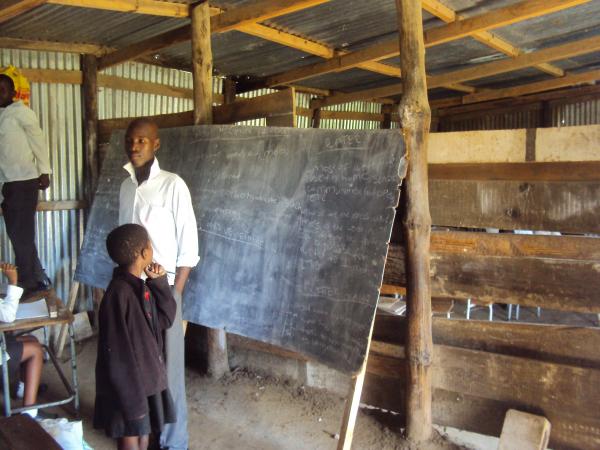Another disappointing delivery failure by the education department

In 2011, a new Backlogs Grant was introduced. The National Treasury allocated R700 million to it. The grant’s main purpose was to eradicate inappropriate structures and mud schools as well as the provision of basic services to schools such as water, electricity and toilets.
This grant was set out to be implemented by the National Department of Basic Education under a unit called the Accelerated Schools Infrastructure Delivery Initiative (ASIDI).
Sixty percent of this grant (R420m) was allocated to eradicate 50 inappropriate structures and mud schools before 31 March 2012, the end of the 2011/12 financial year.
On 12 September in a meeting with the Select Committee on Education in Parliament, The Head of the ASIDI programme, Paddy Padayachee, reported that not one school has been completed yet.
Padayachee stated that the Department intends to hand over schools, ready for use, by the next academic year (January 2013). He cited the following reasons cited for non-delivery of new buildings to schools:
Procurement of implementing agents took longer than anticipated.
The Development Bank of South Africa (DBSA), which on the recommendation of National Treasury was tasked with overseeing implementation, lacked capacity to implement projects as it has never conducted such work before.
Delays in the tendering processes.
It is important to emphasise that this project, unlike the vast majority of the delivery of educational services, is implemented directly by the national department under the direct control of the Director-General of Basic Education, Bobby Soobrayan.
The slow pace of delivery is disappointing. It is unlikely the national department will meet its deadline of the eradication of 496 mud schools and other inappropriate schools by the end of the 2013/2014 financial year, as indicated by Padayachee, if they have difficulties delivering only 50 schools.
Equal Education has been calling for minimum norms and standards for school infrastructure for the past 3 years. A standard that should be set for what schools should look like will be one of the tools to be used as an equaliser in our system and will require provinces to be more accountabile and deliver better facilities for all children regardless of class and race. Today, those who attend rich former model-C schools do not suffer from the poor learning conditions that millions of South African children are exposed to across the country, and particularly in the rural areas of the Eastern Cape, Kwa-Zulu Natal, Limpopo and Mpumalanga.
The national department must be more accountable in the provision of the right to basic education to learners of this country. It must speedily deliver basic services and facilities to schools.
Dwane is the Head of Policy, Communications & Research at Equal Education.
Support independent journalism
Donate using Payfast

Don't miss out on the latest news
We respect your privacy, and promise we won't spam you.
Next: Health workers and patients protest Jooste Hospital closure
Previous: Tag rugby encouraged in township schools

This article is licensed under a Creative Commons Attribution-NoDerivatives 4.0 International License.
